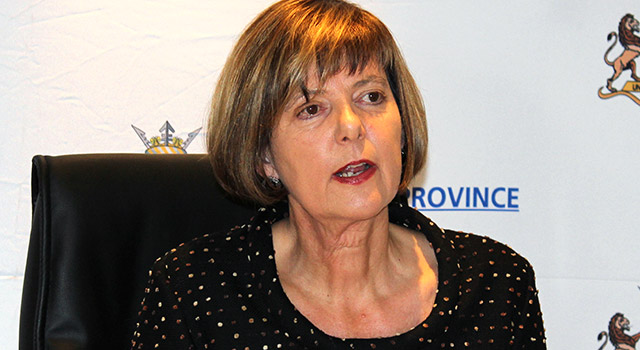
The Gauteng provincial government has revealed more details about its plans to wire up the province to broadband. It is starting the project by connecting its core sites to a 1 600km fibre network.
The province has also announced plans to strengthen financial management by setting up an electronic platform for open tender processes. This will create transparency within government to curb corruption and ensure suppliers are paid on time, says finance MEC Barbara Creecy. This platform will be accessible by all current and prospective suppliers to the provincial government.
“The Gauteng department of finance is mandated to bridge the digital divide. To this effect, the Gauteng broadband network has been identified as a key mechanism to bring about a connected government,” says Creecy.
The 1 600km fibre network will connect all provincial government buildings, including regional satellite offices, all Thusong multipurpose community centres, as well as hospitals and schools.
“While the provincial government is not laying fibre for this project … we are connecting it to government institutions and working with municipalities,” Creecy explains.
There are six core sites that will be connected to the province’s fibre broadband network — Chris Hani Baragwanath hospital, the provincial treasury, the department of finance, the West Rand district offices in Randfontein, the Teraco data centre in Isando and Telkom for the government data centre.
These sites are distribution nodes from which it will be possible to start connecting other government buildings, including schools, says Creecy.
“The planning phase has been concluded … and we are now in the process of rolling it out. The intention is to connect all government offices with voice by the end of this financial year and then data in the next financial year. We also envisage the connectivity of schools, hospitals and clinics with broadband in 2016.”
One of the criteria for judging success of the project is cost savings, she adds. At present, the Gauteng government spends R215m/year on telecommunications services. The Gauteng broadband network is expected to yield savings of R162m/year once it is fully rolled out.
Creecy says the modernisation of government services includes the digitisation of back-office services. In the past three years, an e-recruitment system has handled over 666 000 applications for the 6 000 or so jobs that have been posted online. The benefits to provincial government departments include a reduction in recruitment advertising costs from R13m to just over R2m and an improvement in turnaround times for applications.
In time, the provincial government will also offer Wi-Fi services in public areas and at Thusong centres.
“Because we are working with municipalities … and making sure that fibre and broadband will be available in townships, this opens up a number of economic opportunities for those wanting to offer Wi-Fi services and other entrepreneurial activities.”
Creecy says she will work with the department of economic development in this regard. — (c) 2014 NewsCentral Media




